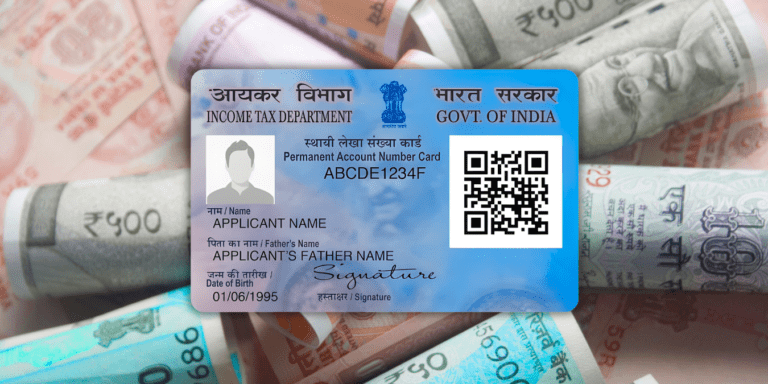
“Learn how savings account interest is taxed in India, including Section 80TTA deductions, tax-free savings options, and ITR reporting. Discover strategies to minimize tax liability and stay updated with the latest tax laws. Perfect for salaried professionals, retirees, and investors looking to maximize savings!”
Interest earned from savings accounts is a common source of income for many individuals in India. Understanding how this interest is taxed is crucial for effective financial planning. This blog post will delve into the intricacies of savings account interest taxation in India, providing the latest data and insights to help you navigate this aspect of your finances.
Why is Savings Account Interest Taxable?
Savings account interest is considered taxable income because it is classified as “Income from Other Sources” under the Income Tax Act, 1961. The rationale behind taxing savings account interest is that it represents earnings generated from your deposited funds, similar to other forms of income like salary, business profits, or capital gains. Since the bank pays you interest for keeping your money in the account, the government treats it as a part of your total income and taxes it accordingly.
Taxation of Savings Account Interest in India
Interest earned on savings accounts in India is considered taxable income by the Income Tax Department. Here’s a detailed look at how this interest is taxed:
- Income Tax: Savings account interest is taxable under the head “Income from Other Sources.” The interest earned must be reported in your Income Tax Return (ITR), and the amount of tax you owe will depend on your overall income and tax slab.
- Section 80TTA: Under Section 80TTA of the Income Tax Act, 1961, a deduction of up to ₹10,000 is allowed on the interest earned from savings accounts. This deduction is available to individuals and Hindu Undivided Families (HUFs). Interest earned from fixed deposits or recurring deposits does not qualify for this deduction.
- Section 80TTB: For senior citizens (aged 60 years or more), Section 80TTB provides a higher deduction limit of up to ₹50,000 on the interest earned from savings accounts, fixed deposits, and recurring deposits.
- No TDS on Savings Account Interest: Banks do not deduct Tax Deducted at Source (TDS) on savings account interest. However, it is the responsibility of the account holder to declare this interest income in their ITR.
What is the Taxable Amount of Savings Account Interest?
The entire interest earned from a savings account is taxable. However, the Income Tax Act provides certain deductions to reduce the taxable amount:
- Section 80TTA Deduction:
- Available to individuals and HUFs.
- Allows a deduction of up to ₹10,000 per financial year on savings account interest.
- If your savings account interest is ₹12,000, only ₹2,000 (₹12,000 – ₹10,000) will be taxable.
- Section 80TTB Deduction (for Senior Citizens):
- Available only to senior citizens (aged 60 and above).
- Allows a higher deduction of up to ₹50,000 per financial year on interest earned from savings accounts, fixed deposits (FDs), and recurring deposits (RDs).
- If a senior citizen earns ₹60,000 in interest, only ₹10,000 (₹60,000 – ₹50,000) will be taxable.
Example of Taxable Amount Calculation
| Scenario | Interest Earned | Deduction (Section 80TTA/80TTB) | Taxable Amount |
| Individual (Below 60) | ₹12,000 | ₹10,000 (Section 80TTA) | ₹2,000 |
| Senior Citizen (60+) | ₹60,000 | ₹50,000 (Section 80TTB) | ₹10,000 |
| Individual (Interest ≤ ₹10,000) | ₹8,000 | ₹8,000 (Section 80TTA) | ₹0 |
Recent Changes in Indian Tax Laws Affecting Savings Account Interest
Increase in Basic Exemption Limit
Under the new tax regime, the basic exemption limit has been increased to ₹3 lakh, providing relief to taxpayers.
Removal of Section 80TTA in New Tax Regime
The new tax regime does not allow deductions under Section 80TTA, making savings account interest fully taxable.
Higher Deduction for Senior Citizens
Senior citizens can now claim a higher deduction of ₹50,000 under Section 80TTB, up from ₹10,000 earlier.
Comparison of Section 80TTA and Section 80TTB
Here’s a clear comparison between Section 80TTA and Section 80TTB in table format:
| Aspect | Section 80TTA | Section 80TTB |
| Applicability | Available to individuals and HUFs | Available only to senior citizens (aged 60+) |
| Eligible Accounts | Savings accounts only | Savings accounts, fixed deposits (FDs), and recurring deposits (RDs) |
| Maximum Deduction | Up to ₹10,000 per financial year | Up to ₹50,000 per financial year |
| Type of Interest | Interest earned from savings accounts | Interest earned from savings accounts, FDs, and RDs |
| Tax Benefit | Deduction under “Income from Other Sources” | Deduction under “Income from Other Sources” |
| Exclusions | Does not cover interest from FDs or RDs | Covers interest from FDs and RDs |
| Purpose | Encourages savings among general taxpayers | Provides higher tax relief for senior citizens |
| Tax Regime Applicability | Available only under the old tax regime | Available only under the old tax regime |
This table highlights the key differences between the two sections, helping taxpayers understand which deduction applies to them based on their age and type of interest income.
Latest Data on Savings Account Interest Rates
As of 2025, interest rates on savings accounts in India have seen significant fluctuations due to economic conditions. Here are some key points:
- High-Yield Savings Accounts: These accounts offer higher interest rates compared to traditional savings accounts. As of early 2025, some high-yield savings accounts offer interest rates of up to 6%.
- Traditional Savings Accounts: The interest rates on traditional savings accounts are generally lower, often ranging between 2.5% to 4%.
Reporting Savings Account Interest on Your Income Tax Return
You must report savings account interest in your Income Tax Return (ITR) under the head “Income from Other Sources.”
Form 16A (if TDS is Deducted)
If TDS is deducted on your savings account interest, the bank will issue Form 16A, which you must use to report the interest income in your ITR.
ITR Forms
- ITR-1 (Sahaj): For individuals with income from salary, one house property, and other sources (including savings account interest).
- ITR-2: For individuals with income from capital gains, foreign assets, or more than one house property.
Strategies to Minimize Tax Liability
While you cannot avoid paying taxes on interest income, there are strategies to minimize your tax liability:
- Tax-Advantaged Accounts: Consider using tax-advantaged accounts like Public Provident Fund (PPF) or National Savings Certificate (NSC) to earn interest that may not be immediately taxable.
- Diversification: Diversify your investments to include assets that generate tax-advantaged income, such as mutual funds or real estate, which may offer more favorable tax treatment.
Understanding how interest from savings accounts is taxed in India is essential for effective financial planning. By staying informed about the latest tax laws and utilizing tax-efficient strategies, you can optimize your savings and minimize your tax liability. Remember to consult with a tax professional to ensure you are meeting all your tax obligations and making the most of your savings.
Frequently Asked Questions (FAQs)
Q: Is savings account interest taxable in India?
A: Yes, savings account interest is taxable under the head “Income from Other Sources.” However, a deduction of up to ₹10,000 is available under Section 80TTA.
Q: How much tax do I pay on savings account interest?
A: The tax rate depends on your income slab. Savings account interest is added to your total income and taxed accordingly.
Q: Are there any tax-free savings accounts in India?
A: While savings accounts are generally taxable, instruments like PPF and SSY offer tax-free interest.
Q: Do I need to report savings account interest in my ITR?
A: Yes, you must report savings account interest in your Income Tax Return under “Income from Other Sources.”
Q: Can I claim a deduction on savings account interest?
A: Yes, you can claim a deduction of up to ₹10,000 under Section 80TTA (₹50,000 for senior citizens under Section 80TTB).
-

US Supreme Court Strikes Down Trump’s Global Tariffs as ‘Unlawful’ — The 18% Tariff on India Is Now Illegal
-

Why Gold Prices Hit ₹15,745 per Gram Today: Indian Market Volatility Explained
-

Spirit Airlines Bankruptcy and Flight Cancellations — The Real Reason!
-

Gold and silver rates today: Latest Rates in all Major Cities February 20, 2026


























